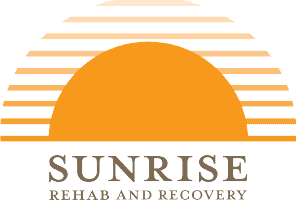Opioid abuse and addiction are some of the most serious problems facing Veterans and First Responders today. Some Veterans and First Responders may begin opioid use by way of prescriptions in order to manage service-related chronic pain. Others may turn to it as a way to cope with issues like depression, anxiety, and PTSD. No matter what leads a Veteran or First Responder to use or abuse opioids, the risks are the same; studies have found that they are twice as likely as civilians to end up suffering from an opioid-related overdose. At Sunrise Rehab and Recovery, our medication-assisted treatment program has been specially tailored to suit the unique needs of the men and women who have served our country.
Many Veterans and First Responders fail to seek help for their opioid abuse because they don’t realize that they have a problem and underestimate the risk of having an overdose. The fact is that no matter whether a person has served or not, abusing opioids puts them at a high risk of negative mental and physical health effects, overdose, and even death. Veterans don’t always admit when they need help. This makes it important to seek the help they need before it’s too late.
Why are Veterans and First Responders More Likely to Abuse Opioids?
Numerous studies have found that Veterans and First Responders are more likely than civilians to abuse opioids and to become addicted. Not all Veterans and First Responders will experience addiction. However, there are some things that can make them more likely to end up with this condition. These include:
Being Involved in Combat
Being in a combat situation exposes service members to higher levels of stress and traumatic events. Active duty service members with combat experience have been found to consume alcohol at a much higher rate than their non-combat peers — a habit that often continues after they leave the military.
When alcohol abuse fails to relieve the combat-related stress and trauma Veterans experience, they may turn to other substances like opioids in order to try to alleviate their symptoms.
Having Been on Multiple Deployments
The more a service member is exposed to the stressors of deployment, the more likely they are to abuse drugs or alcohol. The emotional and mental damage done by just one deployment-related stressor takes its toll. Often the person does not have the time or options to deal with it as it occurs, and as they experience more stress, the temptation to alleviate it via substance abuse increases.
Experiencing a Service-Related Injury
A large percentage of service members leave the military with at least one long-term medical issue, with many having problems with chronic pain. In order to treat injuries and chronic pain, Veterans may be prescribed painkillers. Over time, long-term usage of these drugs can greatly increase the risk of addiction, as these medications should only be used for short periods of time, or to manage severe pain from conditions like cancer.
What is a Medication-Assisted Treatment Program?
A medication-assisted treatment program (MAT) is a type of addiction treatment that has been specifically designed to treat addiction to both opioids and alcohol. It uses a “whole-person” approach by addressing the physical and psychological aspects of addiction. MAT does this by using a combination of both medications and therapy. The medications help to address the physical complications of opioid addiction. Therapy helps Veterans dig into the reasons behind their addiction.
What Medications Does MAT Use for Opioid Addiction?
There are multiple types of medications that medication-assisted treatment programs use in order to help their clients. These medications help to manage opioid cravings and withdrawal symptoms. They do so by interacting with the same area of the brain that opioids do. This, in essence, tricks a person’s brain into thinking that they are still using opioids. In turn, this reduces symptoms without getting them high or encouraging their addiction.
At Sunrise Veterans, we currently offer two different medications that we have found to be the most helpful and effective for helping Veterans with an opioid addiction. These are:
Suboxone
Suboxone works to both reduce opioid cravings and withdrawal symptoms. It is made up of two different medications, buprenorphine, and naloxone, and is most often dispensed as a small dissolvable strip that you place in your cheek or under your tongue. In addition, if you relapse and take opioids while using suboxone, the effects will be greatly reduced, making taking opioids less “rewarding” than it used to be.
The Benefits of MAT Programs
There are many benefits to Veterans and First Responders who enroll in a medication-assisted treatment program. At Sunrise Rehab and Recovery, we recommend this treatment for opioid addictions because:
- It is much safer than trying to quit on your own. Withdrawals can result in very serious and potentially life-threatening withdrawal symptoms.
- MAT medications block other opioids from getting you high. They also help to greatly reduce the risk of returning to abusing opioids.
- Over time, MAT helps to normalize brain activity that has been negatively impacted by opioid abuse. This helps to support long-term recovery.
Begin Our Medication-Assisted Treatment Program for Veterans and First Responders
No matter what led to your opioid abuse, the important thing is to seek help when you need it. With a Veteran-focused medication-assisted treatment program, you can overcome your addiction and get the help that you need for your service-related mental health symptoms. Contact Sunrise Rehab and Recovery today or call now to learn more about how we can help you to overcome this serious condition. It’s time for you to enjoy your well-earned civilian life.
Our Services
Giving Hope To Those In Need
A residential facility providing a recovery-oriented approach to high quality comprehensive treatment for those struggling with addiction.
